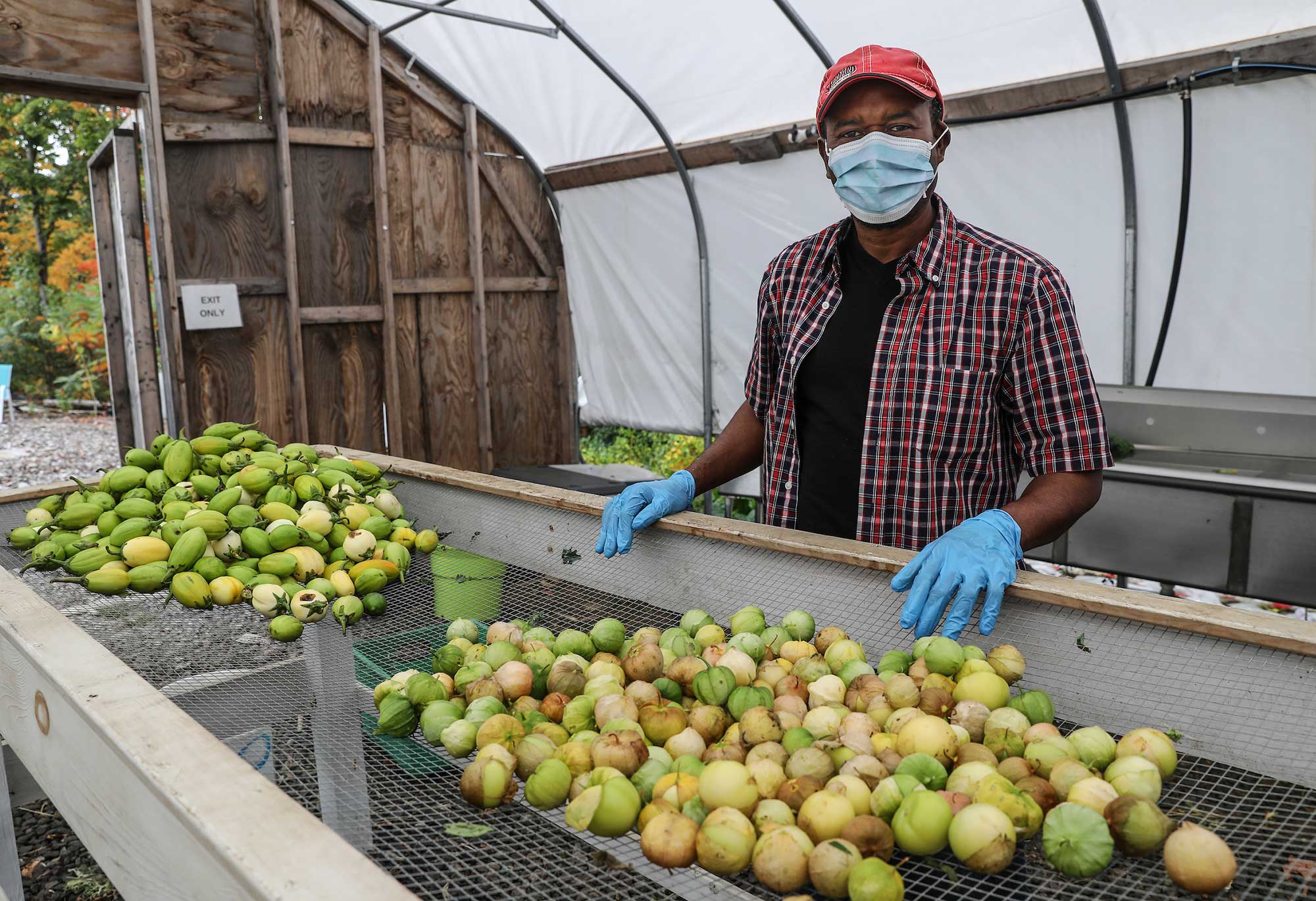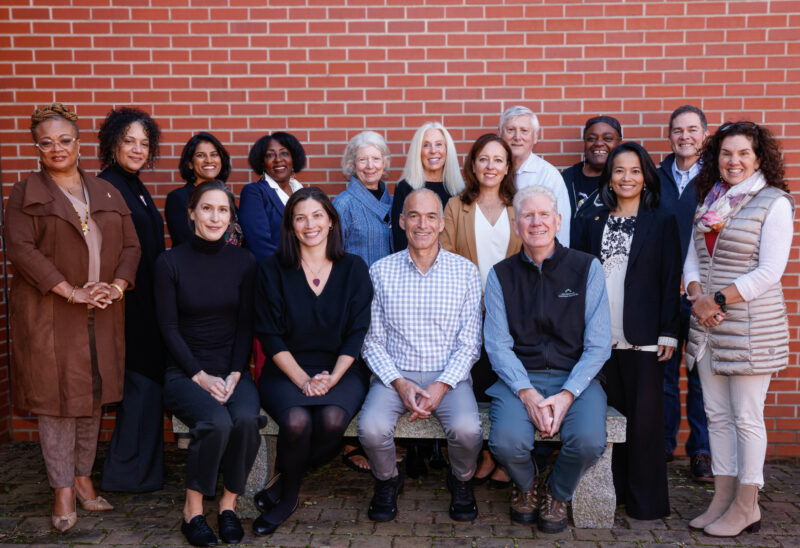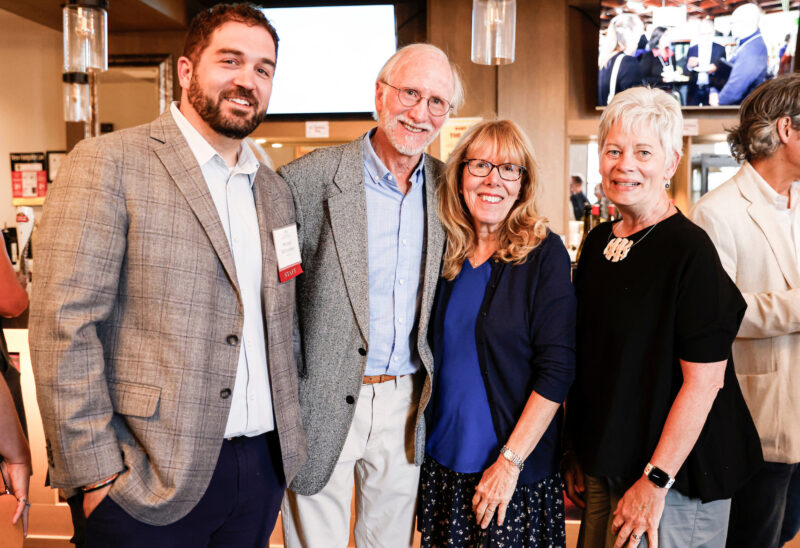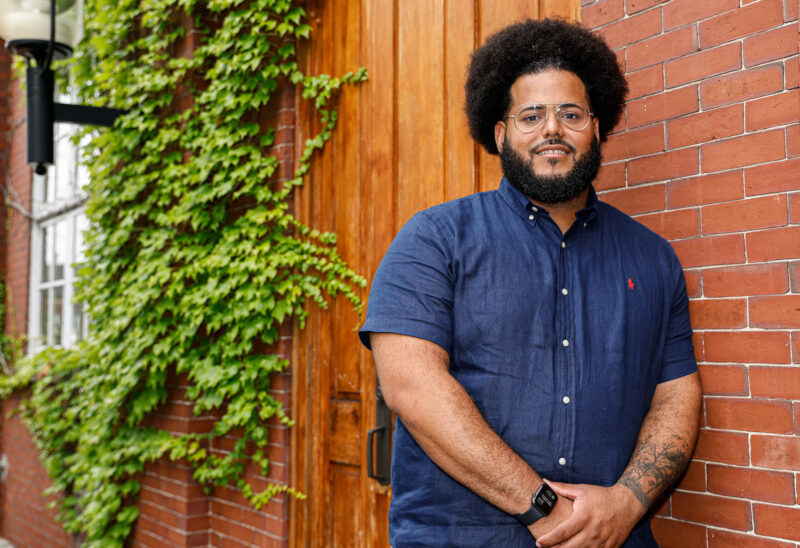When the COVID-19 pandemic struck, things many of us took for granted — like the ease of shopping in grocery stores and the consistent availability of food and other necessities — felt perilously at-risk.
And that peril was most acute among those who already knew scarcity — people who could not afford to stock up on necessities, who lacked access to affordable, healthy produce, and those for whom it was least safe to venture to supermarkets.
More and more people are turning to local food systems. And one organization comprised of immigrants and refugees has stepped up to get the job done: Growing and distributing local, healthy produce — and finding ways to get it to elders, people with disabilities and those on very limited incomes.
The Organization for Immigrant and Refugee Success operates Fresh Start Farms, where 15 farmers grow everything from beets, basil and broccoli to peas, peppers and potatoes. Fresh Start has been in operation for eight years, and recently purchased a 56-acre farm property in Dunbarton. Farmers also produce food at two sites in Concord. In partnership with Neighborworks Southern New Hampshire, ORIS recently opened the Fresh Start Farms Food Hub in downtown Manchester.
Fresh Start sells produce at farmers’ markets, through a CSA and now through its “mobile market,” which loads up with fresh produce and makes the rounds to 14 housing communities in Concord and Manchester where many elders and struggling families live.
“As a community, we all do better when every single one of us in the community is doing well,” said Mukhtar Idhow, the executive director of ORIS, who came from a farming family in Somalia. “It doesn’t do any good to me if I have access to food and my neighbor does not have access to food, if a senior woman next to me does not have access to food.”
A grant from the Charitable Foundation’s Community Crisis Action Fund is supporting the work. The Foundation is also supporting other food hubs around the state that increase demand for, and equitable access to, locally grown food.
The mobile market visits Tina’s building in Manchester every other week, where many elders and people with disabilities live. Tina is immune-compromised and uses an electric wheelchair due to cerebral palsy, so going to grocery stores is challenging in normal times — and those challenges are exacerbated during a pandemic.
“I can’t get to the store regularly,” Tina said. “I can get the vegetables and things that I need when they come here, and I know that they are fresh and I know that they haven’t been shipped from wherever.”
Fresh Start participates in Granite State Market Match, a USDA program designed to help families with low incomes purchase healthy, local food. That means that customers who pay using SNAP or EBT have their purchasing power doubled — literally getting two dollars’ worth of produce for every dollar spent. And, Tina said, mobile-market staff get to know their customers — setting aside items that are their favorites, and helping with recipes and cooking instructions.
The commercial space now housing the Food Hub was the only space of its kind in a residential district, much of which had been developed by Neighborworks, a nonprofit which provides affordable housing.
When people in the neighborhood were asked how they would like the space to be used, the majority wanted a food market. Fresh Start plans to open a retail space there sometime this year. The Food Hub will also house program headquarters, space for farmer training, a commercial kitchen and ample food storage that will allow farmers to grow more and store more food to sell and distribute throughout more of the year.
Sylvain Bukasa wakes every morning at 5 in Manchester and is working among his crops on the Fresh Start Farm in Dunbarton by 5:45. He gets there early, in part, because he has to be at his second job, at Enterprise Rent-A-Car, by mid-day.
He said that the Food Hub will be a huge step forward for all the Fresh Start farmers — allowing them to grow and sell more.
“We need a place where we can process our food, store our food, and then sell our food,” Bukasa said. “That’s what excites me. Right now, I have hundreds of zucchini, summer squash and cucumber that I could just throw away if we didn’t have that place. That has helped me to sell every week, and to donate some food to nonprofits, and helped us to increase the number of CSA customers. We were so limited, because we didn’t know where we were going to store out food. But there is no limitation any more.”
Rather than trying to make a year’s worth of revenue in one 16-week season, Fresh Start farmers can now store and and sell produce to extend that season. And they are adding infrastructure in Dunbarton for winter greenhouse growing.
The Fresh Start FarmsShare CSA saw a huge uptick in demand this year — as more people saw the value in purchasing direct from growers and having their food delivered. Last year, the summer FarmShare program topped out at 70 customers by mid-June. This year, Fresh Start had to cap summer shares at 200, which were sold out in April. (The Fall FarmShare, which runs through the week of November 14, still has shares available, and a winter FarmShare is in the works.) Deliveries go out every week to homes and community sites from Concord to Nashua. The Food Hub means Fresh Start can partner with other producers, so its CSA and market also includes items like eggs, fruit, cheese, grain and maple syrup. Fresh Start’s online system allows CSA customers to select what they want, add items on, and swap things out that they don’t use or need.
Justin Monroe and his family are new Fresh Start CSA customers this year. A weekly delivery comes to their home in Nashua. “It’s a great organization and we are happy to support their mission and the fact that they are growing food in a way that is healthy,” he said. “When the pandemic hit, it was nice because we could get a predictable delivery, and it would eliminate some of our grocery shopping.”
Fresh Start Farms has become an important part of the local food-shed.
“Many people have been quietly building the infrastructure for local food systems — and raising awareness about how important that is – for years,” said Ben Amsden, a senior program officer at the Charitable Foundation. “We’re just fortunate that the groundwork was already underway, and some of these systems put into place, when COVID hit — because organizations like ORIS are positioned to provide critical services to help feed our communities.”

















